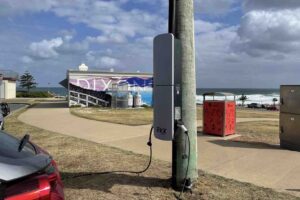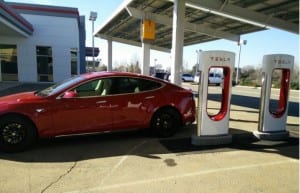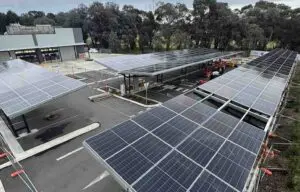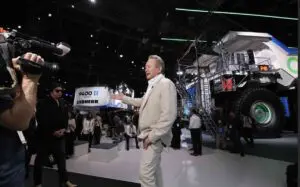
It seems that Elon Musk’s detractors – and they are legion – have decided that it may be now or never if they have a chance of stopping the founder and CEO of Tesla in his tracks.
Tesla has become one of the world’s most recognisable brands, and a marketing and a Google search phenomenon, because of the extraordinary drive and vision of the company’s founder. But it has also become the most “shorted” stock in the world.
And Musk is under renewed attack, led by investors who have made an $11 billion bet that Tesla will fail and its stock will fall dramatically. The company is struggling with production issues for its new Model 3 electric vehicle, and the detractors smell blood.
These are what are known in financial markets as “short-sellers”. Most people invest in stocks because they want the company to succeed and the value of shares to grow, and/or so they can tap into a steady dividend stream.
Short-sellers want the opposite. They are betting on failure. And they are not patient people. “I’m rooting for the stock to go down,” says Carson Block, a well-known short seller from Muddy Waters Capital.
Many of these short-sellers seem to be outraged at Tesla’s market valuation, which peaked at more than $US50 billion.
Internet companies like Amazon, Facebook and Google had similarly vertiginous valuations before they turned a profit, but Tesla has had the front to achieve this in the presence of an incumbent industry. And they are not happy.

And for some, the bet has been so big that it has become bitterly personal.
One of the most notorious short sellers is Mark Spiegel, the founder of Stanphyl Capital Partners, which appears to have bet the house on Tesla failing.
That hasn’t worked out so well to date, because Tesla’s stock went up spectacularly rather than down last year, forcing Stanphyl to report a sharp plunge (20 per cent) in the value of its portfolio.
If Tesla doesn’t fail anytime soon, then Stanphyl’s hedge fund position, and Spiegel’s business, may well be stuffed.
Which is maybe why Spiegel has become such a zealot at conferences and on his Twitter account, repeatedly labelling Musk “Subsidy Fraud-Boy”, and gleefully retweeting any reported cancellation of an order for a Model 3 EV.
Nasty stuff. But Spiegel’s going to want to be busy – there’s another 450,000 or so orders for the Model 3 still on Tesla’s books. That’s a lot of tweeting.
Jim Chanos, from Kynikos, is probably the most famous short-seller in the world, having picked the right time to sell Enron way back when, and he, too, is shorting Tesla.
But Chanos has struggled with technology in the past. Back in 2011, as I wrote at the time, Chanos decided to short the two then most prominent solar and wind energy stocks, First Solar and Vestas, declaring that wind and solar were nothing but “hot air”.
His view of Tesla appears to be based on a similarly skeptical view about electric vehicles and renewables. Chanos dismisses supporters of Tesla as a “cult”.
And this is where the criticism of Musk and Tesla becomes blurred between financial self interest, ideology, and techno-phobia.
An Australian hedge fund manager, Jacob Mitchell, from Antipodes Global, this week added his name to Tesla short sellers, arguing that he couldn’t see how Musk could beat the incumbents on EVs.
Mitchell also dismissed energy storage – despite the obvious success of the Tesla big battery – as something from the future, at least a decade away, and entirely dependent on government handouts.
Really? This guy apparently manages $14 billion of other people’s money. Maybe they should ask him to tread carefully when it comes to decisions about energy and technology investments.
The skepticism and ignorance dives deep, and sometimes reaches the point of denial. The New York Times this week published an astonishing piece by Bret Stephens, the controversial climate denier and fossil fuel apologist. (Read this last link, it’s great).
Stephens dubbed Musk the “Donald Trump of Silicon Valley”, but mostly Stephens doesn’t like new technology, saying that EVs won’t match petrol and diesel cars “for decades” because of disadvantages in energy density, cost, infrastructure and transportability.
That level of denial extends to politicians, even government ministers. Here in Australia, a relatively small investment in what is, nevertheless, the world’s biggest lithium-ion battery, has been panned by conservatives, who have gone into meltdown over the project.

The country’s Treasurer, Scott Morrison (pictured above marvelling at a lump of coal he brought in to the House of Representatives), dismisses the Tesla battery as being about as useful as the Big Banana or the Big Prawn, a reference to two garish sculptures that stand as tacky signatures to the local industries of the towns that host them.
The country’s resources minister, Matt Canavan, dismissed the battery as the “Kim Kardashian” of the energy industry. Canavan supports coal, and thinks Australia should dig up more of it and build more coal-fired generators.
Even the federal energy minister, Josh Frydenberg has been dismissive, saying it could only power the state for a few minutes – a breathtakingly narrow and stupid remark that has only been trumped by those further to right, horrified by its success.
See The case against Tesla and battery storage just hit peak stupid and Coal lobby hits peak denial on battery storage and renewables.
It should be noted, of course, that the Tesla big battery at Hornsdale in South Australia has not just been successful– delivering services at unprecedented speed and accuracy, piercing gas cartel bubbles and lowering prices – it is also changing the way that grid owners and operators are thinking about the future.
And it is locked in yet more battles with the fossil fuel industry about access to markets and market rules, again threatening their incumbency.
Some hit out at Musk because they like to be provocative, and for the publicity.
 Erin Biba is a journalist who has been trying to attract attention since she mocked Musk on Twitter in February for sending his “giant dick into space” (in reference to the successful test of the world’s biggest rocket, and the inclusion of a Tesla Roadster).
Erin Biba is a journalist who has been trying to attract attention since she mocked Musk on Twitter in February for sending his “giant dick into space” (in reference to the successful test of the world’s biggest rocket, and the inclusion of a Tesla Roadster).
She wrote a long article in the Daily Beast this week complaining about the way she was treated by Musk’s supporters on Twitter. Inevitably, it sparked yet more reaction.
Clicks, yes. Gratifying, no. But such polemics have a ready-made audience. Right wing groups backed by conservative public relations specialists and Trump insiders, in turn funded by fossil fuel interests, have launched Twitter campaigns against his business.
So what is really bothering these people?
Well, Musk’s ambition is writ large on Tesla’s website.
“The goal of Tesla is to accelerate world’s transition to sustainable energy,” it says.
And Musk himself usually goes a lot further than this, calling for a “revolt” against fossil fuels, and calling for the removal of $5 trillion of fossil fuel subsidies that is slowing the transition down, which he says could be done in 15-20 years.
That is a scary scenario for both ideologues and incumbents. Musk, and Tesla, threaten to disrupt not one, but three trillion-dollar industries and turn them upside down – auto, electricity, and transport fuels.
Which explains why everyone from the far right, through to car salesmen, property managers, big investors, fossils fuel giants, coal generators, conservative politicians and commentators, and Big Oil do not want him to succeed.
They grudgingly admit that the clean energy transition is coming, they just don’t like the speed with which Musk is bringing it.
So, that’s why the next few months are so important. If Tesla continues to struggle with the production issues with the Model 3, then it could become vulnerable to those short-sellers and naysayers, particularly if it has to go to market for more funds.
If the issues are resolved, and Tesla is delivering profits by the end of the year, then Tesla the company – and the energy transition – will likely be unstoppable, and mighty quick.
And that would leave a few hedge fund managers like Spiegel a long, long way short, and with nothing much to do but moan and Tweet their anger and frustration.












